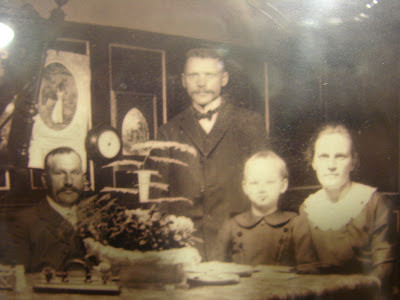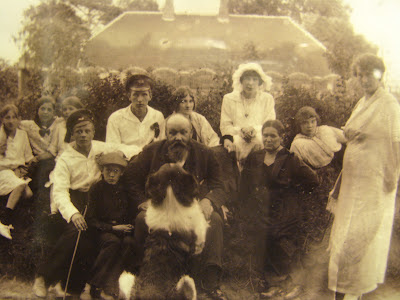Mamma nekad nestāsta anekdotes un jokus, viņa reizēm var mazliet pasmaidīt, kad citi stāsta, bet pati viņa nekad. Parasti mamma vienkārši saka lietas, kuras ir smieklīgas, par kurām var jauki paķiķināt. Šovakar viņa bija atbraukusi no igaunijas dabas takām, un viņa mums ar Lāsmu stāstīja anekdoti par igauņiem. Bija tiešām smieklīgi, man patika.
Bija igauņu operdziedātājs, kurš dziedāja slaveno igauņu operu "Hamlets", acīmredzot bija titullomā. Igaunijā viņam labi veicās, viņš visiem patika, un operdziedātājs nolēma, ka jāpaplašina apvāršņi un jātaisa karjera ārzemēs. Dziedonis atbrauca uz Rīgu, dziedāja "Hamletu" latviski, taču viņa Latvijas karjera beidzās brīdī, kad "būt vai nebūt vietā" viņš dziedāja "pūt vai nepūt". Izslavētās igauņu problēmas ar balsīgajiem līdzskaņiem laikam savu slavu godam pelnījušas.
Aizbrauca meklēt karjeras spožo saulīti uz citu kaimiņzemi, Krieviju. Dziedāja krieviski, tikai "быть или не быть" diemžēl izklausījās pēc "пить или не пить" [krievu val. - dzert vai nedzert], un smieklīgi traģēdijā nav labi, tāpēc arī Krievijas zvaignīte nokrita.
Beigās uz Angliju aizbrauca "Hamletu" dziedāt, bet viņš bija igaunis, un visiem, izņemot igauņus, ir tieksme esamības izteiksmi pārpludināt ar "b" burtiem, un "to be or not to be" diemžēl, diemžēl klausītāju ausīs ieplūda kā "to pee or not to pee" [angļu val. - čurāt vai nečurāt]. Anglijā arī nekas nesanāca, tad igauņu operdziedātājs brauca atpakaļ uz Igauniju, dziedāja, un tur viņam gāja ļoti labi un viss sanāca, un neviens neiedomājās, ka viņš neprot lietot b burtus.
Tad mēs parunājām par to, ka Losandželosa ir Eņģeļi, un ka, lai cik apburošs tāds vārds pilsētai nebūtu, tas tomēr skan pēc Latvijas lauku miesta. Es te uz Eņģeļiem pēc zivtiņām aizbraukšu. Stopiņu pagastā, Eņģeļos, dzīves 77. gadskārtu svin Jēkabs Apšuciems.
Tajā pašā brīdī iztēlojos apmēram 30gadīgas sievietes siluetu gaiši pelēkā sporta tērpā, tajā mīkstajā, kas reizēm tiek lietoti kā mājas tērpi; viņai mati bija astē un gaiši brūni, un mana uzmanība bija vērsta uz jakas līnijām. Līnijas, es domāju, zeltainas līnijas iet gar jaku. It kā vakara gaisma, it kā gaisma no muguras (to sauc par kontru, kādu laiciņu es to zinu).
^^^^^
There was an Estonian opera singer, whose top number was the famous Estonian opera Hamlet", he obviously was in the title-role. He had success in Estonia, everyone liked him, and he decided to widen his horizons and make career abroad. The singer went to Riga, his neighbour country Latvia, he song "Hamlet" in Latvian, though his career in Latvia ended at the moment when he sang "pūt vai nepūt" ["pūt vai nepūt - from latvian ''blow or don't blow", or "to rot or not to rot", when it was supposed to be "būt vai nebūt" - in Latvian "to be or not to be"]. The well-known Estonian inability to pronounce voiced consonants seems to be fairly well grounded.
^^^^^
Mum never telles any jokes, she might smile a bit when someone else tells them, still she never tells jokes herself. Usuallly mum just tells funny things, that we can nicely laugh about. We do like to make fun of certain things she tells. Tonight she had arrived from Estonia, where she was walking some nature paths, and she told me and Lasma a joke about Estonians, it was a funny one, I liked it.
There was an Estonian opera singer, whose top number was the famous Estonian opera Hamlet", he obviously was in the title-role. He had success in Estonia, everyone liked him, and he decided to widen his horizons and make career abroad. The singer went to Riga, his neighbour country Latvia, he song "Hamlet" in Latvian, though his career in Latvia ended at the moment when he sang "pūt vai nepūt" ["pūt vai nepūt - from latvian ''blow or don't blow", or "to rot or not to rot", when it was supposed to be "būt vai nebūt" - in Latvian "to be or not to be"]. The well-known Estonian inability to pronounce voiced consonants seems to be fairly well grounded.
He went to look for his career's shining moments to another neighbour land, Russia. He sang in Russian, however unfortunately the well meant words "быть или не быть " ["to be or not to be" - in Russian] sounded a lot like "пить или
не пить" ["to drink or not to drink" - in Russian], and funny is no good in tragedies, so his Russian star fell as well.
In the end he left for singing "Hamlet" in England. But he was Estonian, and everyone except Estonians have the urge to fill the word which expresses existence with letter "b". Unluckily for him, what the singer uttered as "to be or not to be" reached the audience's ears as "to pee or not to pee". As he neither succeed in Russian, Latvia, nor did he in England, he had nothing left to do but return to Estonia. And he had great success there, and not even one thought could cross anyone's mind that the singer might be unable to pronounce "b".
Then we discussed a bit that fact that Los Angelos is angels and, no matter how charming such name could be for a city, the name still resembles a town in Latvian countryside. I'll take a quick drive to Angels [Eņģeļi - Latvian] to pick up some fishes.
At the same moment I imagined the silhouette of 30 years old woman wearing light grey loungewear, you know, the soft one which one uses as homewear; her hair was in ponytail and lightly brown, and I concentrated on the lines of the jersey. The lines, I thought, golden lines go along the jersey. Somewhat evening light, somewhat lightning from the back (it's called contra light, I know it for some time now).










